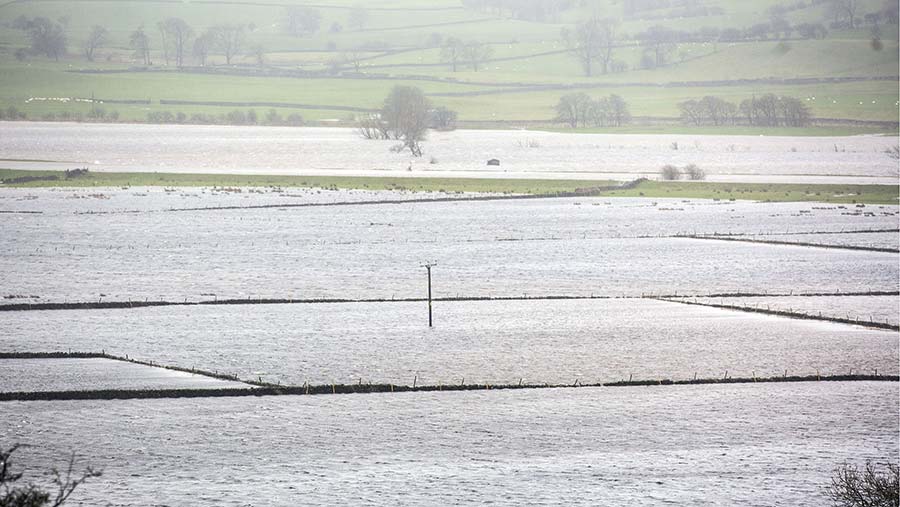Cumbrian farm flood claims to cost at least £20m
 © Andrew McCaren/LNP/Rex Shutterstock
© Andrew McCaren/LNP/Rex Shutterstock Storm Desmond looks to have inflicted £20m worth of damage to farms and rural businesses, according to NFU Mutual.
Flood water and landslides have left a trail of devastation across parts of Cumbria, damaging bridges, walls and buildings, as well as resulting in stock being drowned.
“Our network of local agents across the north of England is telling us that events in Cumbria are on the scale of the 2005 floods; with the potential to be even worse,” said Matthew Scott, NFU Mutual chief claims manager.
“The flood waters are more widespread than in 2005 and 2009, so we anticipate that more homes, farms and businesses may be affected than in the previous floods.”
The NFU said affected farmers needed urgent government assistance and called for partial Basic Payment Scheme (BPS) support payments to be made to people who were yet to see their BPS or stewardship cash arrive.
NFU president Meurig Raymond said: “Members have reported major incidents, such as landslides, which have wreaked havoc with their farmland.
See also: Forage Aid plea to help flood-hit farmers
“They have also told us of power cuts which have made running the business almost impossible, and have raised concerns about scheduled dairy collections and animal feed deliveries, which may be lost.
“We have been given reports locally of cereals crops being destroyed and cattle being moved to higher ground to prevent huge losses to livestock. Reports have been received of sheep being lost to the flooding in some areas.”
In response to Monday’s government pledge to make restoration of power and transport networks a priority, Mr Raymond said support was needed to help farmers with fallen stock disposal, feed deliveries and milk collection.
“We need government and agencies to make it easier for farmers repairing flood damage to land, walls and fences, and to remove rubbish and debris, which is a threat to livestock welfare. In the longer term, we need more resilient channels and bridges able to cope with rapid run-off.
“Prompt action needs to be taken which uses all the tools in the box, including repairing banks and removing debris, while also slowing the flow, storing water and improving infiltration further upstream, where appropriate.
“We have also heard examples where gravel has been washed up on farms. Following the 2009 this was treated as hazardous waste when removal was attempted. We will be lobbying the Environment Agency and Defra on this point on behalf of members.”
